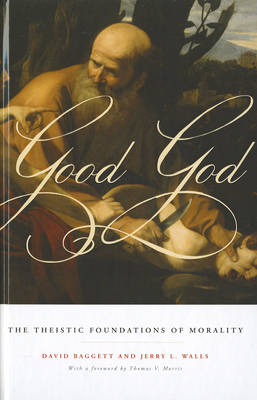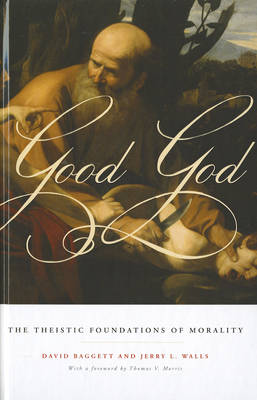
- Afhalen na 1 uur in een winkel met voorraad
- Gratis thuislevering in België vanaf € 30
- Ruim aanbod met 7 miljoen producten
- Afhalen na 1 uur in een winkel met voorraad
- Gratis thuislevering in België vanaf € 30
- Ruim aanbod met 7 miljoen producten
Zoeken
€ 164,45
+ 328 punten
Uitvoering
Prijzen
Omschrijving
This book aims to reinvigorate discussions of moral arguments for God's existence. To open this debate, Baggett and Walls argue that God's love and moral goodness are perfect, without defect, necessary, and recognizable. After integrating insights from the literature of both moral apologetics and theistic ethics, they defend theistic ethics against a variety of objections and, in so doing, bolster the case for the moral argument for God's existence. It is the intention of the authors to see this aspect of natural theology resume its rightful place of prominence, by showing how a worldview predicated on the God of both classical theism and historical Christian orthodoxy has more than adequate resources to answer the Euthyphro Dilemma, speak to the problem of evil, illumine natural law, and highlight the moral significance of the incarnation and resurrection of Christ. Ultimately, the authors argue, there is principled reason to believe that morality itself provides excellent
reasons to look for a transcendent source of its authority and reality, and a source that is more than an abstract principle.
reasons to look for a transcendent source of its authority and reality, and a source that is more than an abstract principle.
Specificaties
Betrokkenen
- Auteur(s):
- Uitgeverij:
Inhoud
- Aantal bladzijden:
- 304
- Taal:
- Engels
Eigenschappen
- Productcode (EAN):
- 9780199751808
- Verschijningsdatum:
- 20/04/2011
- Uitvoering:
- Hardcover
- Formaat:
- Genaaid
- Afmetingen:
- 234 mm x 163 mm
- Gewicht:
- 518 g

Alleen bij Standaard Boekhandel
+ 328 punten op je klantenkaart van Standaard Boekhandel
Beoordelingen
We publiceren alleen reviews die voldoen aan de voorwaarden voor reviews. Bekijk onze voorwaarden voor reviews.













